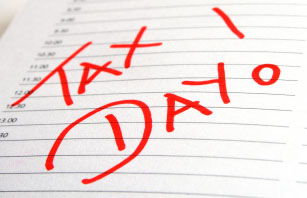Building a Strong Economy and Creating Jobs Requires Making Investments in Mississippi’s Workforce
April 18th, 2012
As we reflect on Tax Day, this posts lifts up the value of adult education and training programs to all Mississippi’s residents.
Across Mississippi, 49,990 working families live on incomes below the poverty level and a total of 129,730 families are low-income.¹
These hardworking families are contributing members to the state’s workforce and regularly face the stress of limited resources while working to cover basic needs.
IMPORTANCE OF WORKFORCE TRAINING
For these families and thousands of other adults, publically funded job training and basic education programs are critical lifelines for advancement into higher paying jobs and the middle class. Fortunately with support of state and federal tax dollars, workforce training is delivered to a broad range of workers from adults unemployed during the recession to employees at hospitals and shipyards.
The skill gains workers make in publically funded training advance industries, create jobs and economically benefit Mississippi communities and families.
ADULT BASIC EDUCATION
In tandem with workforce training, many businesses and working adults benefit substantially from the state’s adult basic education(ABE) system and GED programs. Having adequate resources to support GED and ABE classes builds adult literacy, increases high school equivalency and gives adults more skills to access jobs that support their families. Tax dollars ensure these courses are funded and that more Mississippi adults advance to high school equivalency, a credential vital to advancing in college-level courses and building the competitiveness of the state’s workforce.
Taxes enable Mississippi to invest in higher education, workforce training and adult basic education. Each one of these areas of education is vital to generating a pipeline of highly-skilled workers that strengthen the state’s existing businesses and attract additional development in the state. These public education programs build up a stronger Mississippi economy by bolstering the state’s workers, employers and tax revenue.
As we reflect on Tax Day and the value of public investments across the state, workforce training and adult education programs remind us that the contributions we make in taxes each year have a marked, positive effect on the lives of families, businesses and the state’s job creation.
¹Working Poor Families Project data generated by Population Reference Bureau from the American Community Survey 2012
Author: Sarah Welker, Policy Analyst





